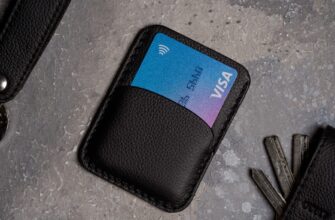What Are P2P Crypto Exchanges and Why “No KYC” Matters
Peer-to-peer (P2P) crypto exchanges revolutionize digital asset trading by connecting buyers and sellers directly, eliminating intermediaries. Unlike traditional platforms, P2P marketplaces facilitate transactions where users negotiate terms and transfer funds privately. The “no KYC” (Know Your Customer) aspect takes this further by allowing trading without identity verification—no passport scans, no bank details, just crypto-to-crypto or cash swaps. This appeals to privacy-focused users, those in restrictive regions, or anyone seeking frictionless access to decentralized finance.
Key Benefits of No KYC P2P Exchanges
- Enhanced Privacy: Trade anonymously without surrendering sensitive personal data.
- Global Accessibility: Bypass geographic restrictions and banking barriers.
- Lower Fees: Avoid hefty platform charges common in centralized exchanges.
- Censorship Resistance: Operate outside traditional financial surveillance systems.
- Flexible Payments: Use local payment methods like cash, gift cards, or bank transfers.
Understanding the Risks and Safety Measures
While no KYC exchanges offer freedom, they carry unique risks. Scams, counterparty defaults, and limited dispute resolution are concerns. Mitigate these by:
- Using escrow services that hold crypto until payment confirmation.
- Checking trader ratings and transaction history meticulously.
- Starting with small trades to test reliability.
- Never sharing private keys or sending funds outside escrow.
- Opting for platforms with robust dispute mediation.
How to Choose a Reliable No KYC P2P Exchange
Selecting a trustworthy platform is critical. Prioritize:
- Reputation: Research user reviews and community feedback.
- Security Features: End-to-end encryption and multi-signature wallets.
- Liquidity: Active user base for faster trades.
- Supported Assets: Diversity in cryptocurrencies and fiat options.
- Transparent Fee Structure: No hidden costs for deposits or withdrawals.
Step-by-Step Guide to Trading on No KYC P2P Platforms
- Create an account using an email alias or pseudonym.
- Browse listings: Filter by currency, payment method, and amount.
- Initiate a trade: Select a seller/buyer and agree on terms.
- Fund escrow: Transfer crypto to a secured holding account.
- Complete payment: Send fiat via the agreed method and confirm.
- Release funds: The seller verifies receipt and crypto is sent to your wallet.
- Rate the transaction to build community trust.
Frequently Asked Questions (FAQ)
Q: Is using a no KYC exchange legal?
A: Legality varies by jurisdiction. While crypto-to-crypto trades are often unregulated, fiat transactions may require compliance. Always consult local laws.
Q: How do no KYC platforms prevent fraud?
A: Through escrow systems, user reputation scores, and community moderation. Some employ decentralized arbitration via smart contracts.
Q: Can I trade large amounts without KYC?
A: Most platforms impose limits per trade (e.g., $1,000). For bigger volumes, split transactions or expect heightened scrutiny.
Q: Are there reputable no KYC exchanges?
A: Platforms like Bisq, Hodl Hodl, and LocalCoinSwap are well-regarded for non-custodial, private trading—but DYOR (Do Your Own Research).
Q: What cryptocurrencies can I trade?
A> Bitcoin (BTC), Ethereum (ETH), and stablecoins like USDT are most common. Some support altcoins—check platform listings.
Final Thoughts
No KYC P2P exchanges empower users with unparalleled autonomy, but demand vigilance. By combining privacy with smart trading practices, you can navigate this frontier safely. As regulations evolve, these platforms continue redefining financial sovereignty—one decentralized trade at a time.








